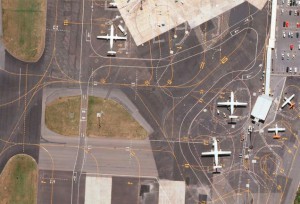 Over at The Federalist today, I ruminate on a conversation I overheard at an airport recently. I was an innocent auditor, I assure you. In the words of Sam Gamgee to Gandalf, “I ain’t been droppin’ no eaves sir, honest.”
Over at The Federalist today, I ruminate on a conversation I overheard at an airport recently. I was an innocent auditor, I assure you. In the words of Sam Gamgee to Gandalf, “I ain’t been droppin’ no eaves sir, honest.”
The conversation had to do with the prices of goods and services on offer at airports. To simply blame (or credit) capitalism with the situation is misleading. As I conclude, “We should try to understand the words people are using, the way they are using them, and the assumptions underlying such uses.” After all, capitalism means different things to different people in different contexts.
The recognition of this ambiguity is precisely why John Paul II, in a critically important section of Centesimus Annus, takes the time to unpack some of the definitional difficulties. Thus, writes John Paul, addressing whether the new era has ushered in a world characterized by the victory of capitalism,
If by “capitalism” is meant an economic system which recognizes the fundamental and positive role of business, the market, private property and the resulting responsibility for the means of production, as well as free human creativity in the economic sector, then the answer is certainly in the affirmative, even though it would perhaps be more appropriate to speak of a “business economy”, “market economy” or simply “free economy”. But if by “capitalism” is meant a system in which freedom in the economic sector is not circumscribed within a strong juridical framework which places it at the service of human freedom in its totality, and which sees it as a particular aspect of that freedom, the core of which is ethical and religious, then the reply is certainly negative.
Whether we should praise or blame capitalism, whether capitalism ought to be pursued or avoided, depends in large part on what we mean by capitalism!
This calls for wisdom. As Dylan Pahman has saliently pointed out recently, the real world (not the world of theorists and theologizers) is enormously complex. Sorting out what is what is difficult, in the cases of airports as well as strip malls. Which market form, for instance, does the airport economy represent?
And in the end, I think we should be thankful that $5 fruit is on offer at an airport at all, considering the enormous complexity of what is going on at these hubs of global travel!

